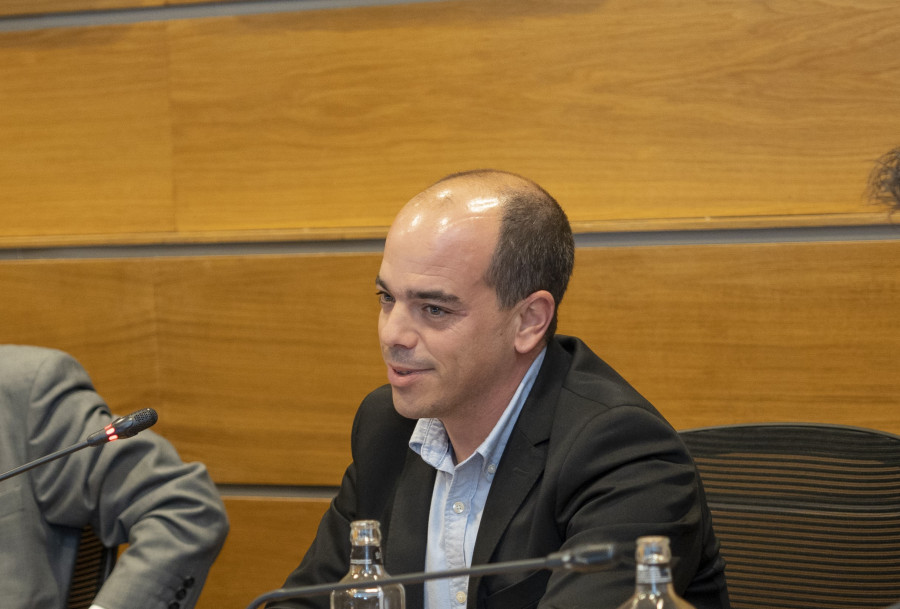Modular production and priority in sustainability

Joan Picoret, Director of Automotive Sales and Account Executive for KUKA in Spain, Portugal and Latin America, spoke about modular manufacturing, support for maintenance in the integration of equipment and, above all, he placed great emphasis on the issue of sustainability. The first delivery of AutoRevista's 5th Conference on Digitisation and Automation held on 8th November 2022.
“Although we were founded in the automotive industry, where our main activity continues to be focused, thanks to digitalisation, KUKA is present in many other areas. Picoret stressed the importance of the "total cost of ownership of the customer, from the time the robot is purchased until the end of its useful life, taking into account not only the initial investment, but also the cost of energy, maintenance, spare parts, etc. We not only develop products, but we also participate in assembly operations, turnkey facilities, including the field of batteries, both in battery box and pack mode”. In addition to commenting on the delivery of online training, he pointed out that "the maintenance, diagnosis and repair service is carried out using virtual reality glasses, without the need to send technicians to solve faults".
“Today, we still know automobile manufacturing as a linear, high-volume production process in automated mass production. However, given the requirements for flexibility and diversification, the trend is moving towards modular production and, in this sense, KUKA offers individual cells that allow production to be scaled, which is already beginning to be implemented today. The AGVs and AMRs not only bring to the cells what the manufacturing part itself is, but also the tools and tools necessary to be able to produce in that cell. We believe that the production of high volumes will not be so common in the future, but that they will be smaller production lots. We call it Matrix production, so that with the support of dynamic warehouses, different products can be manufactured in the same cells, with the consequent increase in production efficiency”.
“As a provider of solutions for efficiency and transparency in production, we have to continue to supply not only the installation, but also digital services such as our KUKA SIM simulation tool for proper integration; or KUKA Smart Monitoring, for complete monitoring of the production process with its digital twin. Also the habit of human-robot collaboration. Customer-focused connectivity is also supported by our KUKA.iiQoT support, for management advice, condition monitoring, notifications, fault diagnosis and maintenance”.
“Today, through the mobile telephone we can know the status of our fleet of robots and updated information on the situation of each one of them, and monitoring production and maintenance that way. We extract data based on the customer's needs, who can choose between processing it or having us carry out this task in the KUKA cloud to predict all situations, including, in addition, aspects such as industrial safety and predictive maintenance”.
“Companies like KUKA are already making our contribution to sustainability in the current paradigm shift. We have internalised concepts such as energy management, consumption reduction, and minimising the carbon footprint. When analysing the total cost of an investment for robotisation, working with different external companies, we have come to the conclusion that for a 14-year-old robot in the automotive industry, 39% corresponds to the initial investment, but the following percentage refers to energy expenditure with 35%. We are working not only on our products but on how we produce internally in our factories. From 2010 to 2022 we have managed to reduce the energy consumption of our robots by 60%”.
“For the optimisation of the energy efficiency of current production, we use a catalogue of measures by which experts optimise energy consumption from a holistic vision of the programming of the robot, PLC and production system. As possible measures are the optimization of trajectories, waiting times and the total cycle time to verify the savings, the energy consumption before and after the application of the measures is identified. The amortisation period of each measure is shown through a measurement profile”.
“Finally, it is very interesting to note that we are working together with several companies, such as BMW, Mercedes Benz, Homag and the Fraunhofer Institute, in Germany so that our machines stop working with alternating current and start working with direct current. This way we lose less energy, by having the possibility of working directly connected to renewable networks. In addition, we can also take advantage of the energy generated by braking the robot's movement and reuse it and reintegrate it into the network”.
Presentation published in 2.375 issue by AutoRevista

FEMZ y CAAR refuerzan su apuesta por un modelo de trabajo basado en la colaboración público-privada para asegurar el futuro de esta actividad en Aragón.

La periodista Irene Díaz, quien ha formado parte del equipo de redacción de AutoRevista desde enero de 2023, asume la subdirección de la revista. El nombramiento se hizo efectivo el 30 de junio de 2025.

La 21.ª edición de los Volkswagen Group Awards ha premiado el rendimiento excepcional y la colaboración a largo plazo dentro de la red de proveedores. Antes de la ceremonia, Volkswagen AG dio la bienvenida a unos 120 proveedores clave a la Autostadt de Wolfsburg para celebrar una Conferencia sobre Gestión de Proveedores.

Los representantes de la Junta Directiva y Asamblea General de ANFAC han confirmado la adhesión de XPENG como nuevo miembro de la asociación. Con esta nueva incorporación, ya son 62 las marcas que forman parte de la entidad.

La cuarta edición de Motortec Chile, con casi 8.000 visitantes durante sus tres jornadas, del 26 al 28 de junio pasados, se ha afianzado como la feria más relevante de la posventa de automoción del Cono Sur americano..
